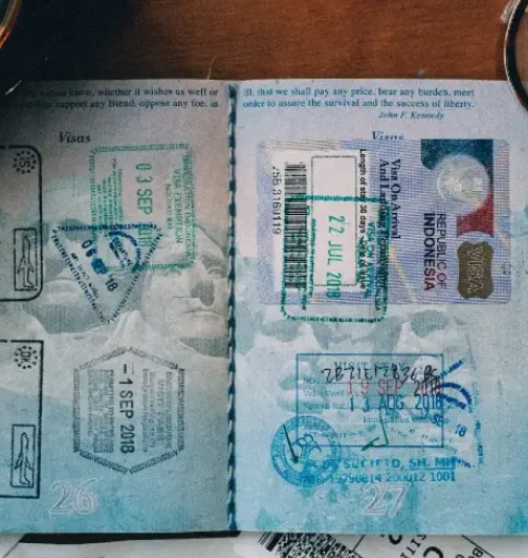If you’re planning to move to Thailand with your family or are looking to join a loved one already residing there, the Thailand Dependent Visa is an essential part of the process. This visa enables spouses, children, and dependent parents to live in Thailand while their primary visa holder, such as a spouse or parent, works or resides there. This guide will walk you through everything you need to know about the Thailand Dependent Visa, including eligibility, types, application procedures, and more.
What Is the Thailand Dependent Visa?
The Thailand Dependent Visa, also known as a Non-Immigrant “O” Visa, allows family members of those legally residing in Thailand to join them. This visa is typically issued to:
- Spouses of foreign nationals holding long-term visas (such as work or retirement visas).
- Children under 20 years of age who are unmarried.
- Dependent parents of the primary visa holder.
The visa is renewable and allows holders to stay in Thailand for the same duration as the primary visa holder.
Eligibility for a Thailand Dependent Visa
To apply for a Thailand Dependent Visa, applicants must meet certain criteria:
Relationship Requirements:
- Spouse: Must be legally married to the primary visa holder.
- Children: Must be under 20 years old and unmarried.
- Parents: Must be financially dependent on the primary visa holder.
Supporting Documents:
- Proof of relationship (e.g., marriage or birth certificate).
- A valid passport with at least six months of validity.
- Evidence of financial stability (depending on the primary visa type).
Primary Visa Holder Requirements:
- The primary visa holder must have a valid long-term visa (such as a Non-Immigrant “B”, Retirement, or Elite Visa).
- The primary visa holder must be able to financially support their dependents.
Types of Thailand Dependent Visas
There are two primary types of Dependent Visas available:
- Single-Entry Dependent Visa: Valid for 90 days and ideal for short-term stays or initial entry into Thailand.
- Multiple-Entry Dependent Visa: Valid for one year, allowing multiple entries into Thailand during the visa period.
Documents Required for the Dependent Visa
To apply for a Dependent Visa, you will need the following documents:
For the Applicant:
- A valid passport.
- Passport-sized photos according to Thai visa guidelines.
- Proof of relationship (such as a marriage or birth certificate), translated and notarized if required.
For the Primary Visa Holder:
- A copy of their passport and visa.
- Work permit (if applicable).
- Proof of financial stability (bank statements, income proof).
Additional Documents:
- Police clearance certificate (if required).
- Medical certificate (if requested).
Step-by-Step Application Process
- Prepare Documents: Ensure all required documents are gathered, translated (if necessary), and notarized.
- Submit Your Application: Apply at a Thai embassy or consulate in your home country or a nearby country. Include:
- Completed visa application form.
- All required supporting documents.
- Visa application fee (fees vary by location).
- Wait for Processing: Processing times can range from 5 to 10 business days, with expedited processing available for an additional fee.
- Enter Thailand: Upon approval, you will receive your visa and can enter Thailand. Ensure your visa is correctly stamped at the immigration checkpoint.
- Visa Extension: If needed, apply for an extension at a local Thai immigration office. Extensions generally align with the duration of the primary visa holder’s stay.
Costs Associated with a Dependent Visa
The cost of a Thailand Dependent Visa depends on the type of visa and where you apply:
- Single-Entry Visa: Approximately ฿2,000.
- Multiple-Entry Visa: Approximately ฿5,000.
- Visa Extensions: About ฿1,900 per extension.
Practical Tips for a Smooth Application Process
- Double-Check Documentation: Ensure that all documents are complete and accurate to avoid delays or rejections.
- Translate and Notarize: Non-Thai documents should be translated into Thai or English and notarized where necessary.
- Stay Updated on Requirements: Immigration policies may change, so it’s important to check the latest information with the Thai embassy or immigration office.
- Maintain Proof of Financial Support: Ensure bank statements and proof of income meet the financial criteria set by Thai authorities.
- Respect Visa Conditions: Avoid overstaying your visa to prevent fines, bans, or deportation.
Frequently Asked Questions About the Thailand Dependent Visa
Can I Work with a Dependent Visa?
No, the Dependent Visa does not allow you to work in Thailand. To work legally, you will need to apply for a work permit and a Non-Immigrant “B” Visa.
How Long Can I Stay with a Dependent Visa?
The duration of the visa is tied to the primary visa holder’s stay. Single-entry visas are valid for 90 days, while multiple-entry visas can last up to one year.
Can I Change a Tourist Visa to a Dependent Visa?
In some cases, you may be able to change your tourist visa to a Dependent Visa by visiting a Thai immigration office and providing the necessary documentation.
Conclusion
The Thailand Dependent Visa provides a valuable option for families looking to reunite in the country. By understanding the eligibility criteria, gathering the necessary documents, and following the correct application process, you can ensure a smooth experience when applying for this visa. Whether you’re joining a spouse, parent, or child, the Dependent Visa allows you to experience life in Thailand while staying in compliance with immigration laws. Stay informed, plan ahead, and enjoy your time in Thailand!


